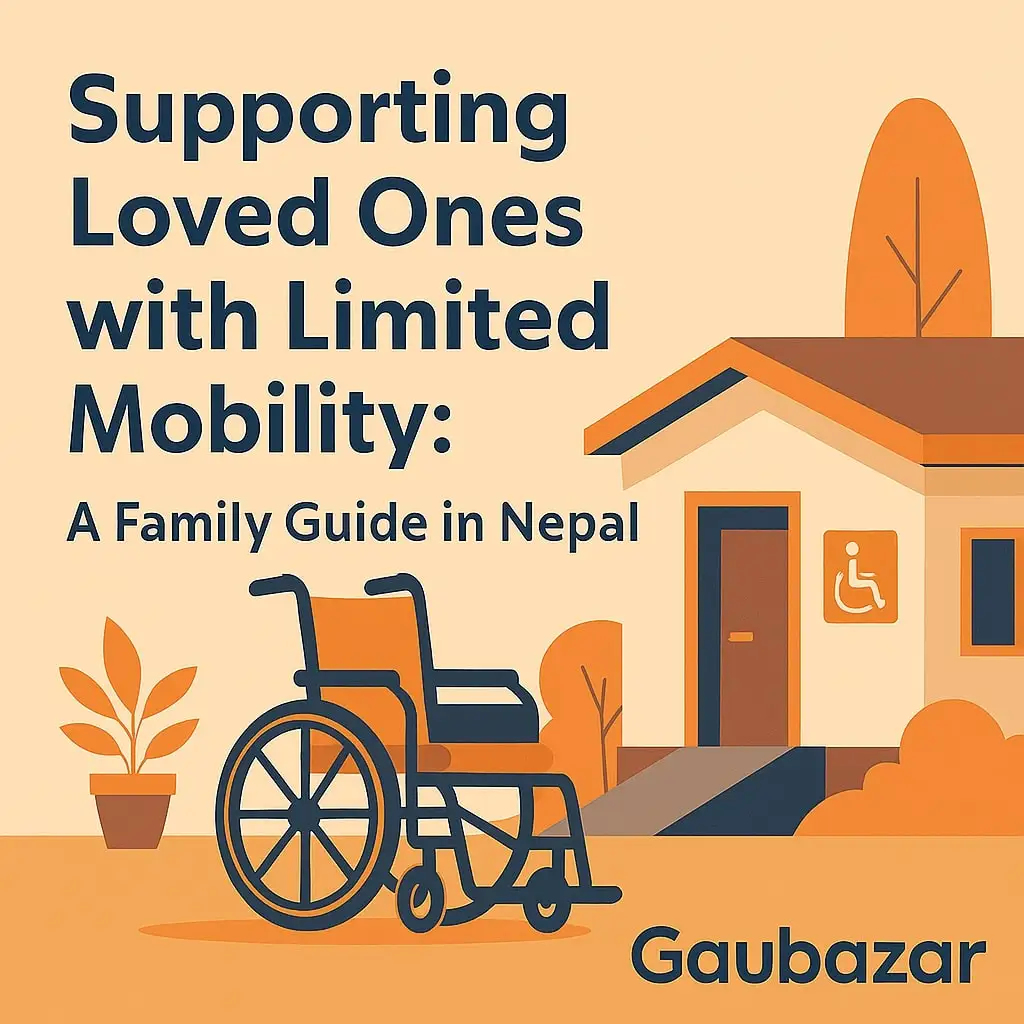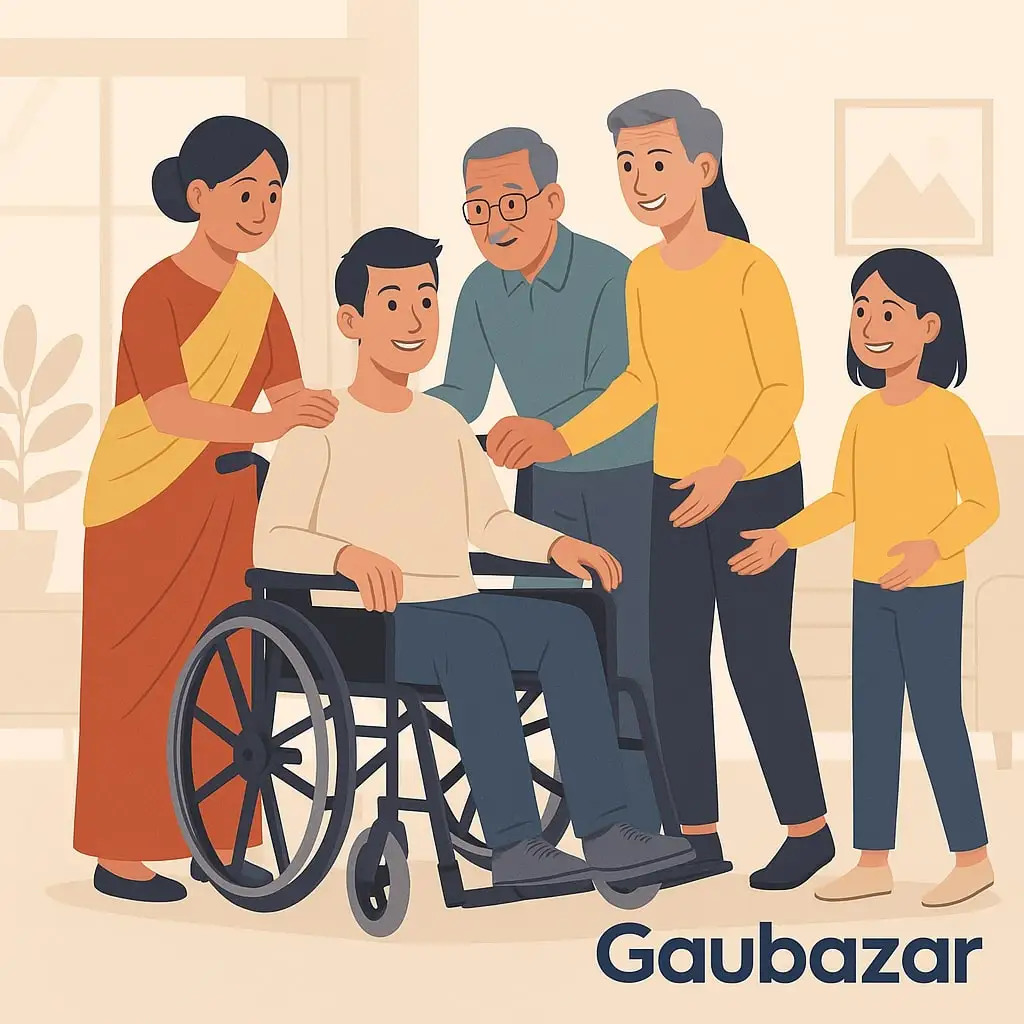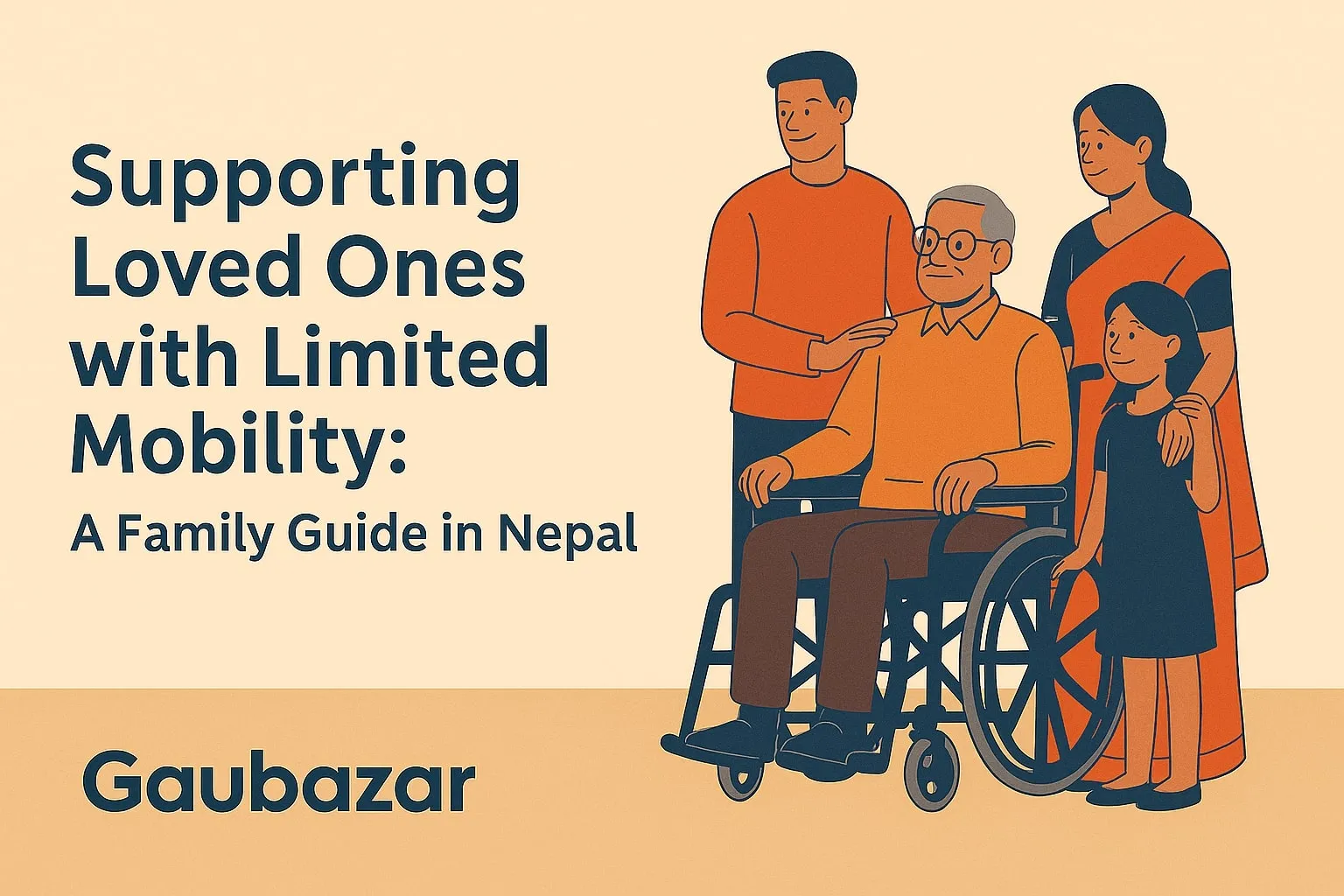In Nepal, family is the heart of care. When a loved one experiences limited mobility — whether due to aging, injury, or disability — family members often become their first and most trusted caregivers.
Supporting someone with mobility challenges goes beyond physical assistance. It’s about helping them live a life filled with comfort, confidence, and dignity.
As health educators and advocates of accessible living, we at Gaubazar believe that informed families can make a world of difference.

1. Understanding Limited Mobility and Its Impact
Limited mobility affects a person’s ability to move freely or perform daily activities independently — from walking and bathing to navigating their home.
In Nepal, where traditional homes and public areas may not always be accessible, families often face challenges in providing safe and comfortable spaces. Recognizing the physical, emotional, and social impact of mobility limitations is the first step toward meaningful support.
Mobility support is not just about convenience — it’s about preserving independence and emotional well-being.
2. Creating a Safe and Accessible Home Environment
Accessibility starts at home. A few thoughtful adjustments can help your loved one move safely and comfortably:
- Keep floors clear of obstacles and uneven surfaces.
- Use ramps or handrails in entrances and bathrooms.
- Ensure good lighting in all rooms and hallways.
- Add non-slip mats in kitchens and washrooms.
- Keep essential items within easy reach.
For individuals using wheelchairs or mobility aids, a barrier-free layout promotes independence and reduces risk.
Discover practical solutions and high-quality wheelchairs in Nepal at Gaubazar — designed to enhance accessibility and safety at home.
3. Choosing the Right Mobility Aid: A Step Toward Independence
Mobility aids — from wheelchairs to walkers and canes — empower individuals to move with freedom and comfort.
When selecting the right aid, consider:
- Daily activity levels and mobility needs
- Comfort, posture, and body support
- Portability and durability
- Maintenance requirements
Choosing a wheelchair isn’t only about function — it’s about matching lifestyle and health needs.
For detailed guidance, visit Gaubazar’s Wheelchair Buyer’s Guide for Nepal, which helps families make informed, health-conscious decisions.
4. Emotional Support: Strength Beyond Assistance
Supporting a loved one emotionally is just as crucial as meeting physical needs.
Limited mobility can sometimes lead to frustration, dependency, or isolation — but consistent care and communication can make all the difference.
You can help by:
- Encouraging small steps toward independence
- Involving them in family discussions and activities
- Offering reassurance and active listening
- Celebrating achievements, no matter how small
A compassionate approach helps loved ones feel respected, capable, and connected — vital for mental and emotional health.
5. Caring for the Caregiver
In Nepalese households, caregiving is often a family effort — and while it’s rewarding, it can also be emotionally and physically demanding. Caregivers should prioritize their own health too.
- Share responsibilities among family members.
- Take short breaks to rest and recharge.
- Connect with local or online caregiver communities.
- Stay informed about new mobility tools and techniques through Gaubazar’s blog.
A supported caregiver is a stronger caregiver — ensuring long-term, loving support.
6. Building an Inclusive Future in Nepal
Every act of compassion helps create a more inclusive Nepal — one that values accessibility and equality for everyone.
By combining empathy with the right mobility aids, families can foster a culture of independence and dignity for loved ones with limited mobility.
Gaubazar is proud to support this vision — providing trusted, affordable, and durable wheelchairs and mobility solutions in Nepal.
Visit Gaubazar’s Mobility Collection to find tools that empower movement and enhance daily life.

✨ Final Thought
Caring for someone with limited mobility is not a duty — it’s a journey of compassion and strength.
With the right information, home environment, and mobility solutions, every family in Nepal can help their loved ones move freely, live independently, and feel valued.
Together, we can build a society that truly believes in inclusive living in Nepal — one home, one family, one heart at a time.
New Blog Articles On Wheelchair:
Wheelchair Maintenance & Safety Tips
Accessibility & Inclusive Living in Nepal
How to Choose the Right Wheelchair (Guide)
